How did Russia’s ‘fleet of lunatics’ almost start a war with Great Britain?
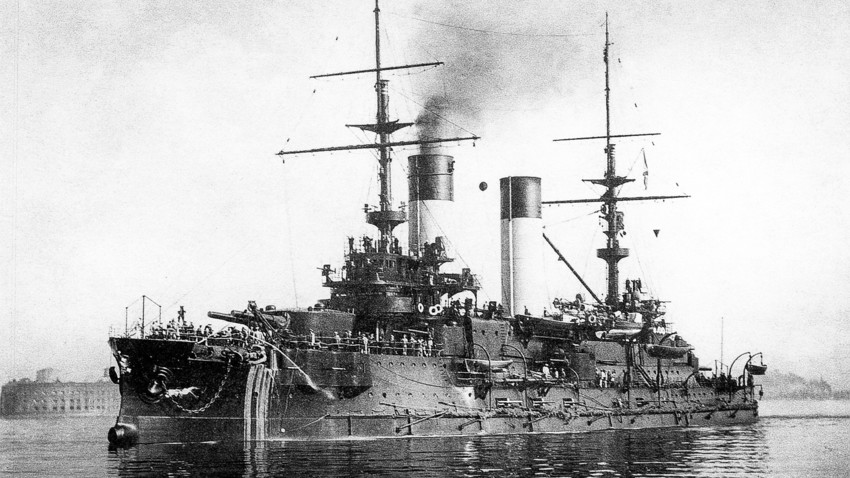
Oryol battleship
Russian and Soviet Navy Photo archiveOne Russian fleet during the Russo-Japanese War can certainly be named “fleet of the doomed” because its fate was to be almost obliterated at the Battle of Tsushima. Moreover, on their way to this unfortunate clash, the squadron almost started a war with Great Britain.
On Oct. 2, 1904, the Second Pacific Squadron left Russia’s Baltic ports and headed to the Far East. Over 30 warships were sent to fight for the honor and interests of the Russian Empire.
Before they reached their destination, however, Russian sailors caused the so-called Dogger Bank incident, which almost resulted in Great Britain declaring war on Russia.
A nervous voyage
The Russian fleet had to go a long way around Europe to reach Asia. Before the departure, commanding officers were warned that Japanese submarines and warships, also disguised as merchant ships, might attack at any moment during the voyage.
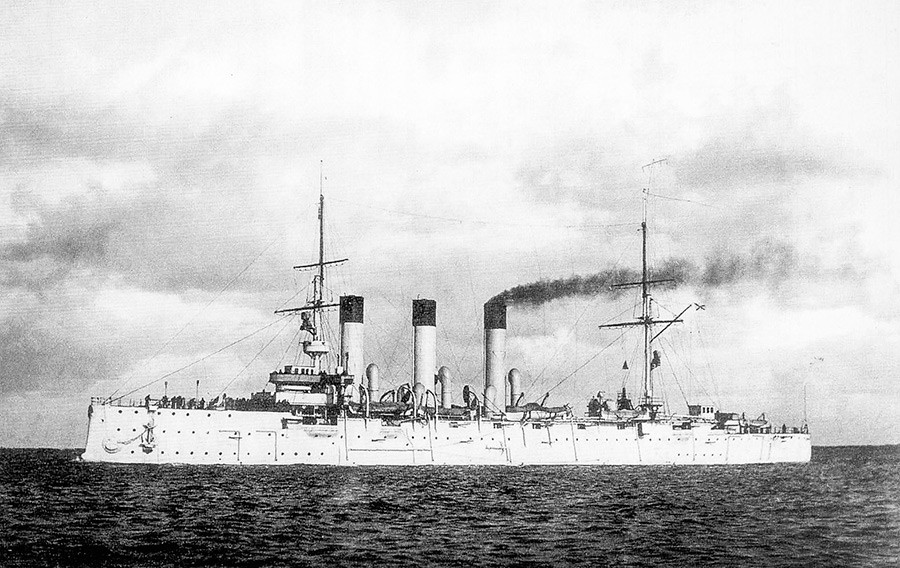
Aurora cruiser
Archive photoFrom the very beginning, the crews were in a state of combat readiness, and in each passing
This nerve-wracking wait for an attack infected not only the
When the fleet passed Denmark one ship reported that two Japanese balloons were spotted. While this information wasn’t confirmed, the level of anxiety had significantly increased.
Fatal mistake
The tension that consumed the crews finally found an unexpected release, the consequences of which terrified the sailors themselves.
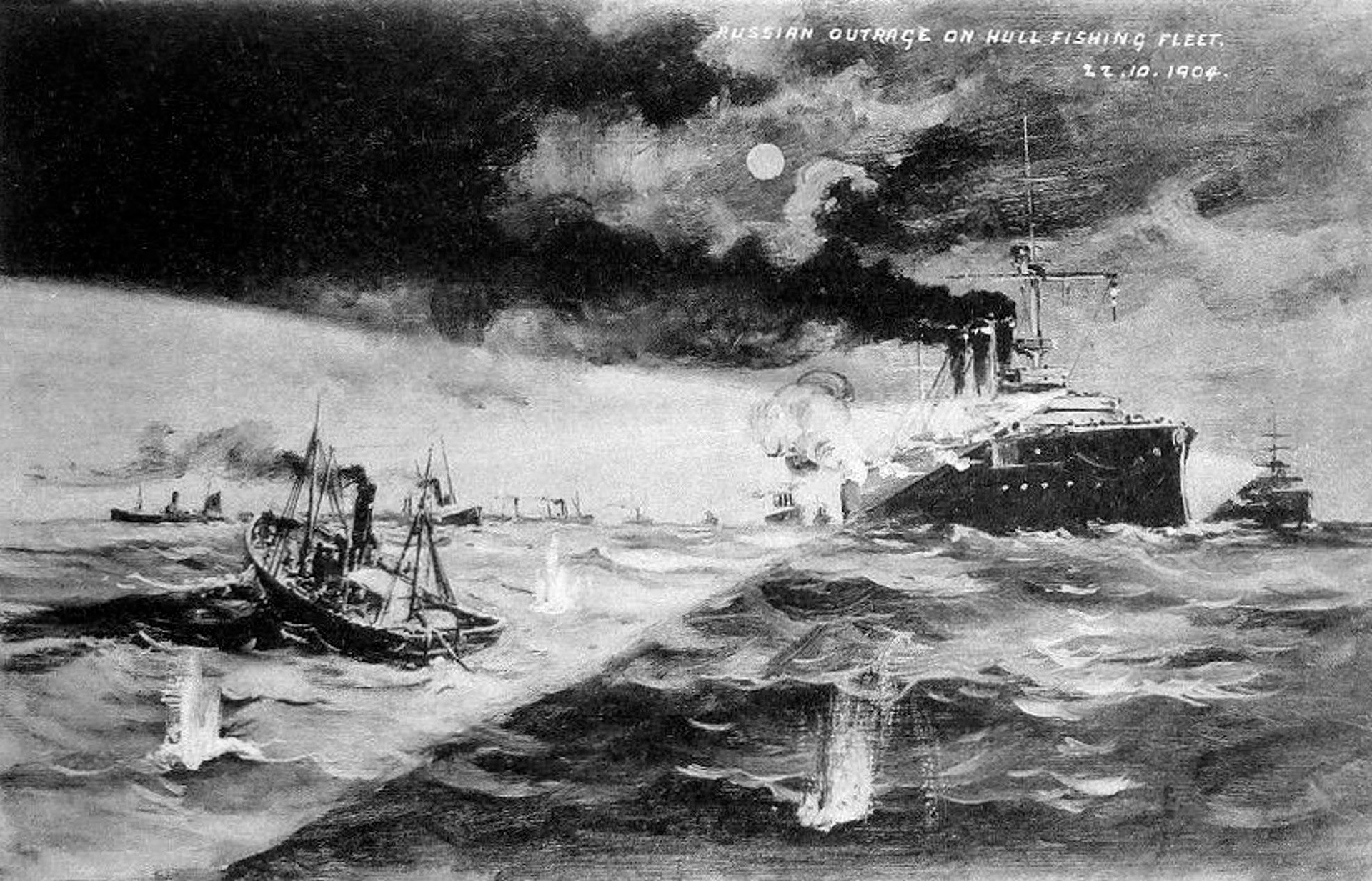
During the foggy night of Oct. 21, the squadron entered the Dogger Bank area off the English coast where there was a group of unknown vessels, which the Russians mistook for Japanese torpedo boats. The Imperial ships opened frantic fire.
Chaos engulfed the warships. In the complete darkness spotlights randomly darted in all directions. Beside firing large cannons, machine gun fire was also unleashed, as if the enemy was trying to board the Russian vessels, which was not true at all.
“We were baptized by fire for the first time, but we didn’t know who we were fighting against,” Kostenko wrote
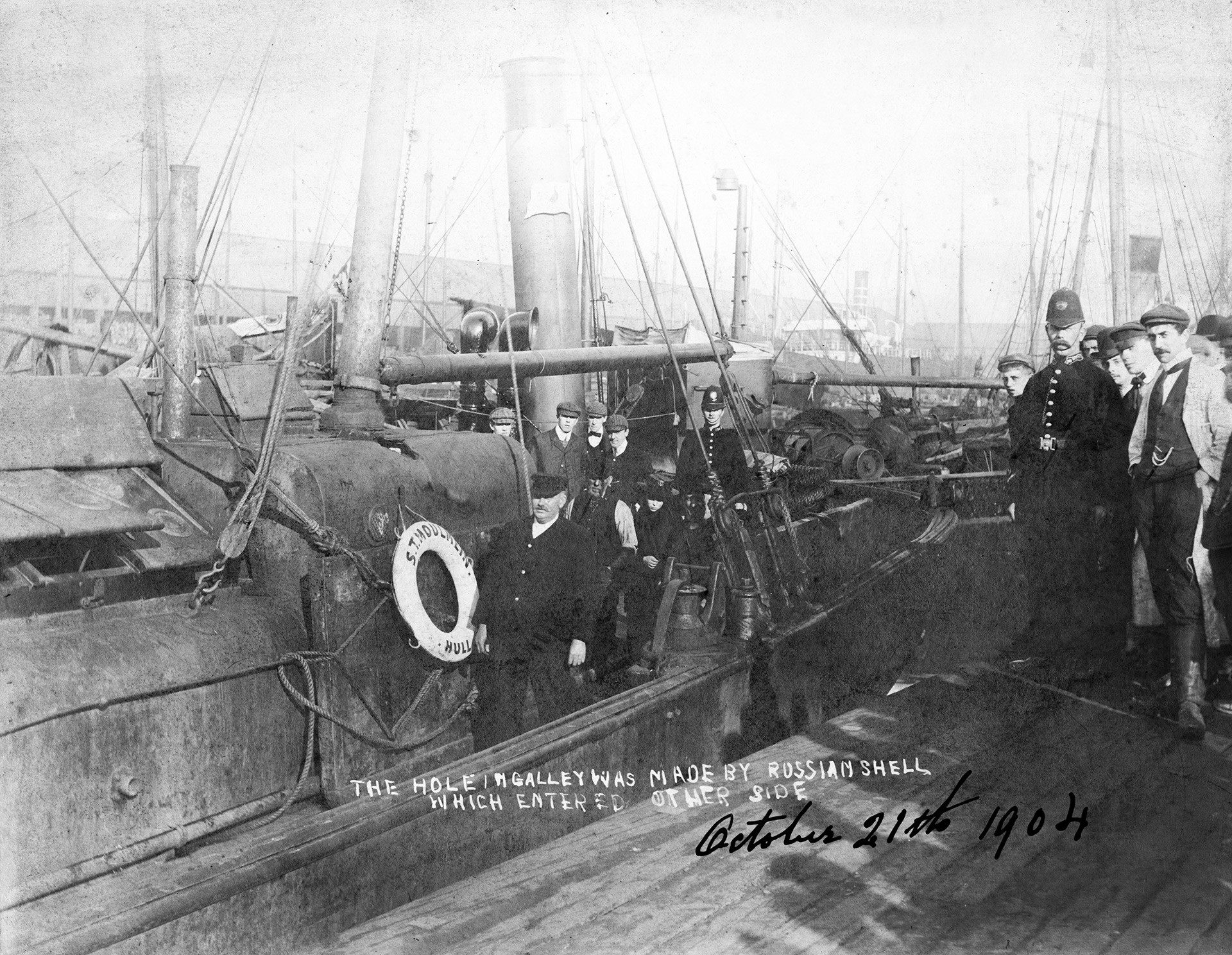
The hole made in the Hull steam trawler St Moulmein by a Russian shell.
Getty ImagesRussian forces also suffered losses. The future symbol of the Russian Revolution, the Aurora, was hit by friendly fire, lethally wounding a priest on board.
Britain prepares for war
British society was outraged by the incident, and the local press ridiculed the Russians as “pirates” and “a fleet of lunatics,” demanding the heads of those officers who were responsible.
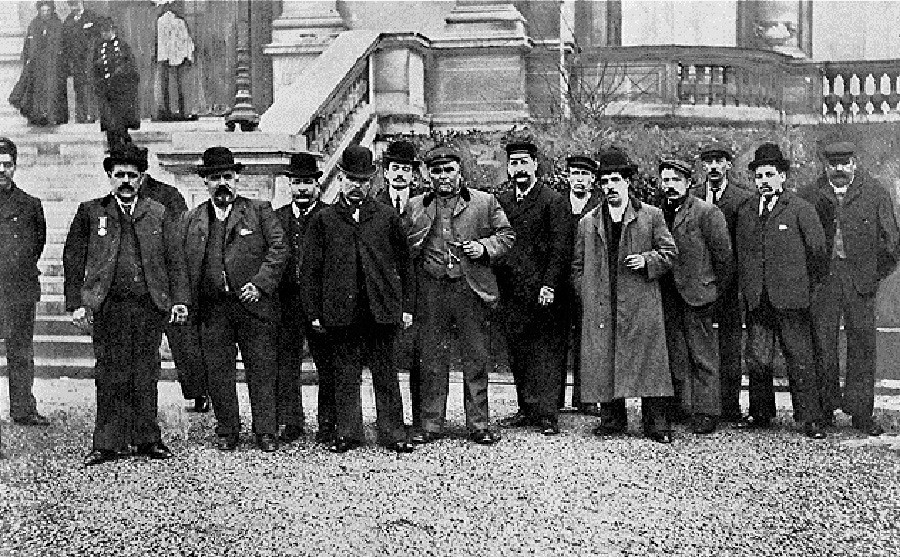
British fishermen in Paris to testify before the Commission.
Archive photo"It is almost inconceivable that any men calling themselves seamen,
Nearly 30 ships of the Home Fleet were ordered to prepare for war, while another naval unit led by the cruiser, HMS Lancaster, went after the Russian ships in the Spanish port of Vigo, and then closely followed them until the Canary Islands.
“We were forced to silently tolerate this insulting ‘convoy,’ and the sailors were lashing
Relations between the two countries reached their lowest point in the previous 20 years.
Peaceful solution
To avoid war, Russia and Great Britain came to the negotiating table, and an independent international commission was established to investigate the incident.
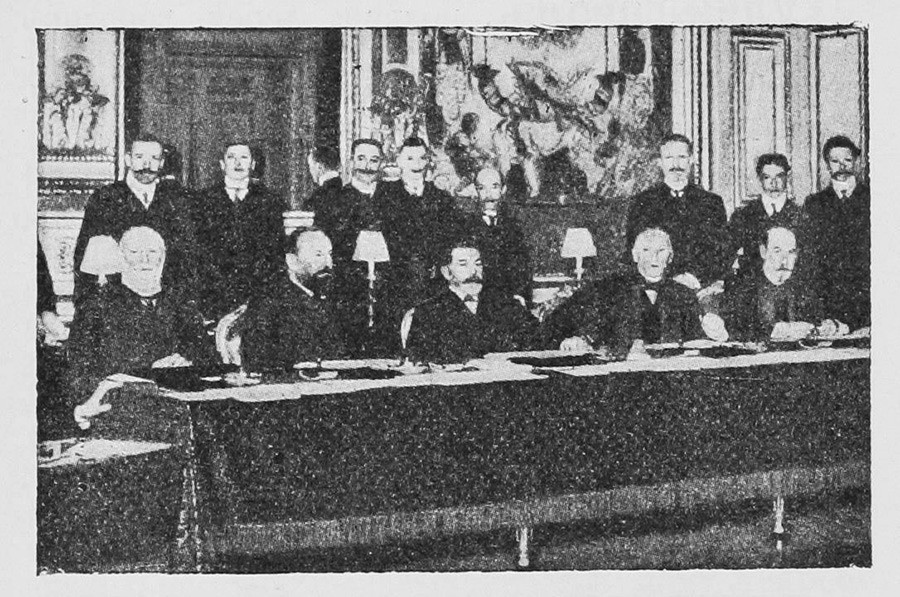
The results of almost two
Finally, the conflict was settled when Russia agreed to pay the British fishermen a compensation of £66,000.
The countries managed to avoid war, but even more important, two years later they signed the Anglo-Russian Convention and became close allies, enjoying a strategic partnership for over a decade until the monarchy fell in Russia in 1917.
If using any of Russia Beyond's content, partly or in full, always provide an active hyperlink to the original material.
Subscribe
to our newsletter!
Get the week's best stories straight to your inbox